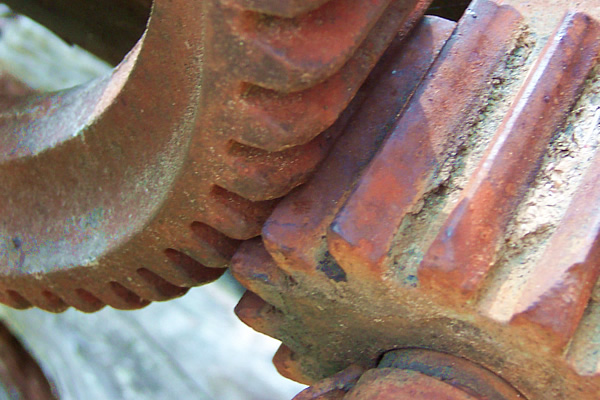It’s time for South Carolina to get a new nickname that better reflects what really happens at the Statehouse in Columbia.
Rather than the common “Palmetto State” or distant and mostly forgotten “Iodine State,” we suggest the appropriate moniker is “Squeaky Wheel State.” It illustrates how those who holler loudest about something get the most attention, particularly from a public policy perspective.
 If you haven’t yet learned, South Carolina’s culture places more emphasis in reacting to problems instead of planning to deal with issues before they become problems. That’s just the way we’ve rolled.
If you haven’t yet learned, South Carolina’s culture places more emphasis in reacting to problems instead of planning to deal with issues before they become problems. That’s just the way we’ve rolled.
The latest squeaky wheel? Roads, a $42 billion infrastructure problem over the next 30 years that has lawmakers scrambling for some way to keep the highway network acceptable so it doesn’t reduce competitiveness and harm the transfer of goods or people from point A to point B. Poor roads are not a new problem. The eruption of the issue now is completely logical. What else did leaders think would eventually happen after under-investing in road and bridge maintenance for a generation?
But in South Carolina, leaders often put off what they should do today until tomorrow. It’s just part of the state’s stubborn culture — “We’re proud to live here but don’t tell us what to do. We’ll do what we want when we want to do it.”
If you start looking for policy “squeaks,” or the need for reactive solutions because someone is hollering or things have gotten so bad that they can no longer be avoided, they’re not hard to find. Some recent ones:
Squeak: Property tax reform. After Charleston blue bloods whined and moaned about residential property tax rates, lawmakers enacted reform that slashed rates, but kept them high for businesses. Wealthier folks saw great savings from the measure, Act 388. Middle-class South Carolinians shouldered the burden.
Squeak: Hacking. After hackers exploited personal information of millions of residents and businesses in the largest hacking ever of a state, the Department of Revenue finally had to beef up information security.
Squeak: Changes at DSS. When people finally understood how many children were dying while in the care of the state Department of Social Services, the cry for reform reached the level that lawmakers started working on it.
Squeak: Ethics. When two of the state’s top officials — a lieutenant governor and a House speaker — went down for ethics and corruption problems in about as many years, lawmakers finally got more serious about toughening ethics rules. (They still have a lot of work to do.)
There are major down sides to reacting, instead of being proactive. By reacting to those who holler loudest or dealing with problems that have festered so long that they can no longer be avoided, other challenges — poverty, health care, environment, income inequality — are pushed to the back burner, where (guess what) they fester until they mature in squeakiness.
“We don’t have a plan” as a state, observes former state Sen. Phil Leventis, a Sumter Democrat who served in Columbia for more than 30 years. “We value too highly in our consideration those things which we are most aware.” For example, we would get real concerned about earthquakes and being ready for them after one hit when, in fact, we should have prepared long before.
“The fact that we are reactionary is only part of the problem,” he said. “Being reactionary sets up a scenario for a reaction that is not well-considered because it’s based more on fear and recent events than it is some kind of considered reasoning. It’s kind of a double trap.”
How did South Carolina get this way, particularly when it started off as a relatively progressive business colony that was proactive for its day in tolerating different religions and pushing for a strong central government after the Revolutionary War? The answer is probably rooted in the state’s post-Reconstruction reaction that disenfranchised blacks and sustained the plantation culture through tenant farming and the textile mill system.
We’ve put off the medicine for better public policy for too long. Now it’s time to shed the shackles of how we’ve always done things and start planning so that we can stop being the Squeaky Wheel state.
This commentary first appeared in Statehouse Report.




 We Can Do Better, South Carolina!
We Can Do Better, South Carolina!

























One Comment